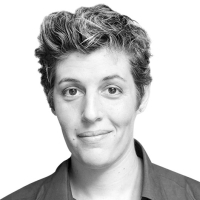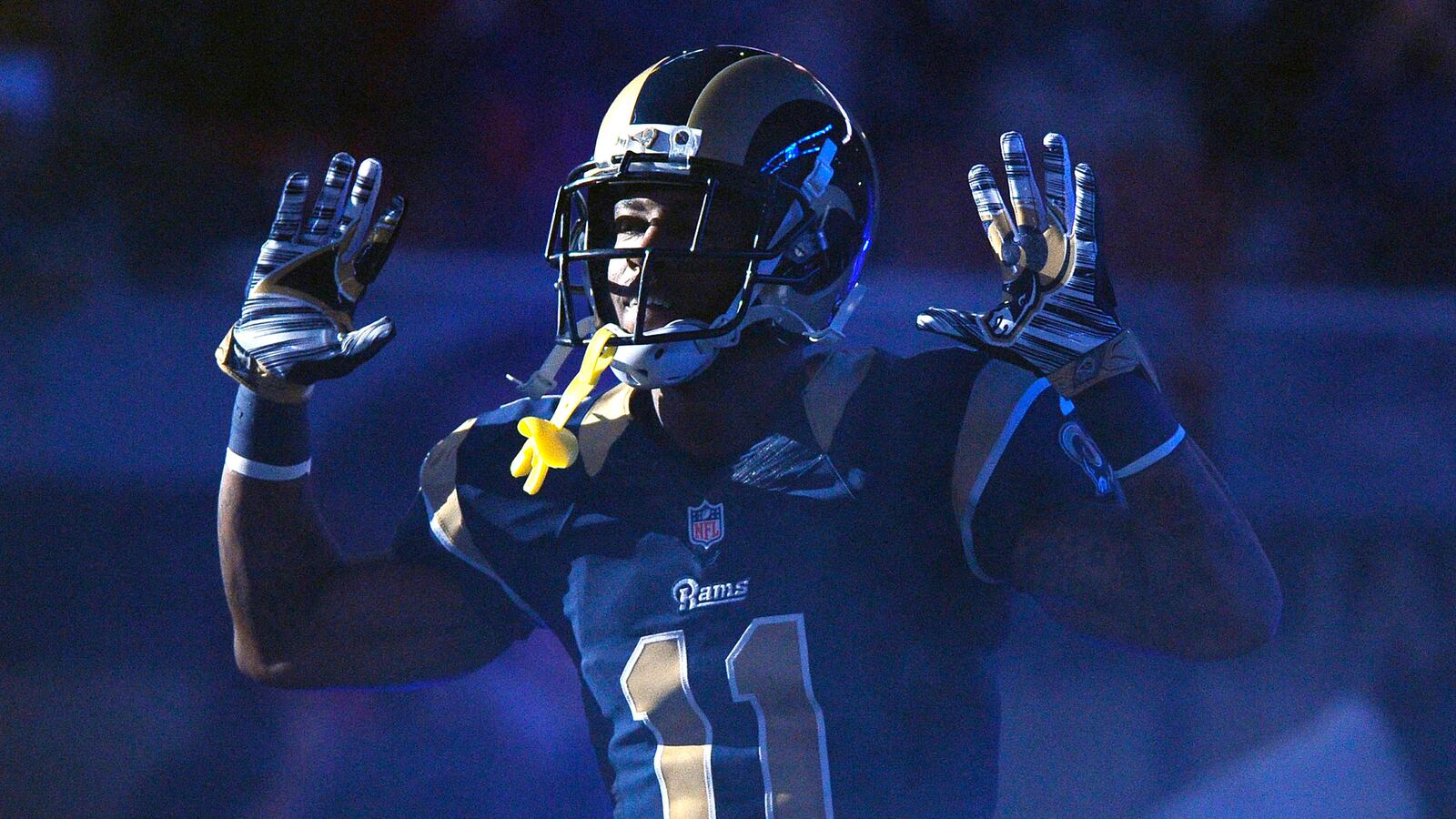Sometimes everything wrong with a larger dynamic is captured in one small interaction. And so it is with the St. Louis Rams and the St. Louis Police Officers Association.
At the start of their game against the Oakland Raiders on Sunday, five St. Louis Rams players entered the stadium with their hands raised, mirroring the “Hands Up, Don’t Shoot” pose of protesters in Ferguson and across America.
And then the St. Louis Police Officers Association, apparently with nothing better to do, released a statement condemning the players. It read, in part, “The St. Louis Police Officers Association is profoundly disappointed with the members of the St. Louis Rams football team who chose to ignore the mountains of evidence released from the St. Louis County Grand Jury this week and engage in a display that police officers around the nation found tasteless, offensive and inflammatory.” The cops also asked for “very public apology” from the team, and demanded that the five players be disciplined. (The team refused.)
Wait a second, how were the Rams players protesting the police? What says they were even protesting the grand jury decision? The St. Louis cops obviously have a 1st Amendment right to say whatever they want, but their reaction reflects how sadly polarized the discussion of Ferguson has become.
After all, while we can and should parse the grand jury’s decision to not indict Officer Darren Wilson—and debate whether federal charges should be filed—the fact remains that Michael Brown was an unarmed black teenager shot and killed by a cop, which is an all-too frequent occurrence in America today. Yes, the protests in Ferguson were certainly sparked by the shooting of Michael Brown—and the community was and certainly still is protesting for accountability and transparency from the police and government there—but the protests are also about the much broader problem of police violence against the black community.
The “Hands Up, Don’t Shoot” pose comes originally from eyewitnesses reporting about Michael Brown’s stance in the moments before he was shot and killed by Darren Wilson. There are now conflicting eyewitness accounts about that moment, but even if it were apocryphal, “Hands Up, Don’t Shoot” symbolically captures a broader sentiment. Michael Brown got protesters out in the streets. But the protests continue because of the wider crisis, fueled by the memories of Tamir Rice and Trayvon Martin and John Crawford and Oscar Grant and many, many more unarmed black men shot dead.
The St. Louis Rams players who held up their hands at the start of Sunday’s game suggested as much in interviews afterwards. “No matter what happened on that day, no matter how the whole situation went down,” said tight end Jared Cook, “there has to be a change.” No matter what happened that day, he said. That is, the protests are indeed about what happened to Michael Brown, but not just about what happened to Michael Brown.
“It touched a lot of us. It added fuel to our fire,” said running back Tre Mason. Added fuel to the fire, he said—as in, the fire was already burning.
As Businessweek noted while tweeting their cover this week showing a young black girl with her hands raised, “#Ferguson violence isn’t just about Michael Brown. It’s about years of injustice.”
Exactly.
It’s strange to me that the St. Louis cops—as well as many other cops and white folks in general—see the Ferguson-inspired protests in oppositional terms. If you’ll forgive the cliché, it’s simply not that black and white. Sure, there are some protesters making blanket condemnations of the police and white people—but, like those vandalizing and looting, those protesters are overwhelmingly in the minority. The vast majority of people energized around these issues are trying to fight for justice and fairness and basic humanity—not against anyone.
The dynamic reminds me of those Law & Order-type TV shows with the aggressive prosecutors who keep pursuing a case even when evidence comes out suggesting the defendant is innocent. Are we all so stuck in our roles that when a given issue comes up, we just default to type? Community activists attack racial bias in policing, so police get defensive? The irony is that communities are protesting stereotyping—as cops respond in stereotypical ways. What would happen if the police dropped the defensiveness and said, “You’re right, we clearly have a problem here, let’s work together to fix it”?
Let’s see: On November 20, as a tense nation awaited the grand jury’s decision in Ferguson, police in New York shot and killed an unarmed young black man in Brooklyn. The day after, New York City police commissioner Bill Bratton said the shooting was “an unfortunate accident” and that the victim, Akai Gurley, was “a total innocent.” The evening after the shooting, the police commissioner, as well as New York mayor Bill de Blasio and his wife, visited Gurley’s family. While Akai Gurley’s death clearly reflects the same sorts of systemic issues with police violence against the black community, the protests in New York have been relatively muted. After all, government and police have actually been transparent and responsive—both in this specific case and in trying to address patterns of police abuse in general, which Mayor de Blasio has made a priority.
In other words, the St. Louis cops got it wrong. The protests—from the football player and more generally—aren’t meant as an indictment of the cops but an invitation to join in solving the problem. Too many young black men are being shot and killed. Whatever you think of one particular case, can’t we all agree the patterns of police violence against black men are disturbing?
Studies of implicit bias (PDF) show that all of us—black and white, cops and college students—are more likely to mistakenly think an unarmed black person is actually armed and pull a simulated trigger. Shouldn’t we all want to do something about that? Especially the police? The protests are less about calling anyone out and more about calling us all to action to actually solve these problems rather than perpetuating them with our defensiveness or silence.
To the St. Louis cops and others who are taking the protests personally: get over yourselves. No one is saying you wake up every morning hell-bent on killing unarmed black kids. It’s not personally your fault that we have this crisis in America. But it is your responsibility to do something about it. You want people to stop protesting police actions? Then help create diverse, accountable, community-rooted police departments that work actively to subvert implicit bias, instead of ignoring it.






